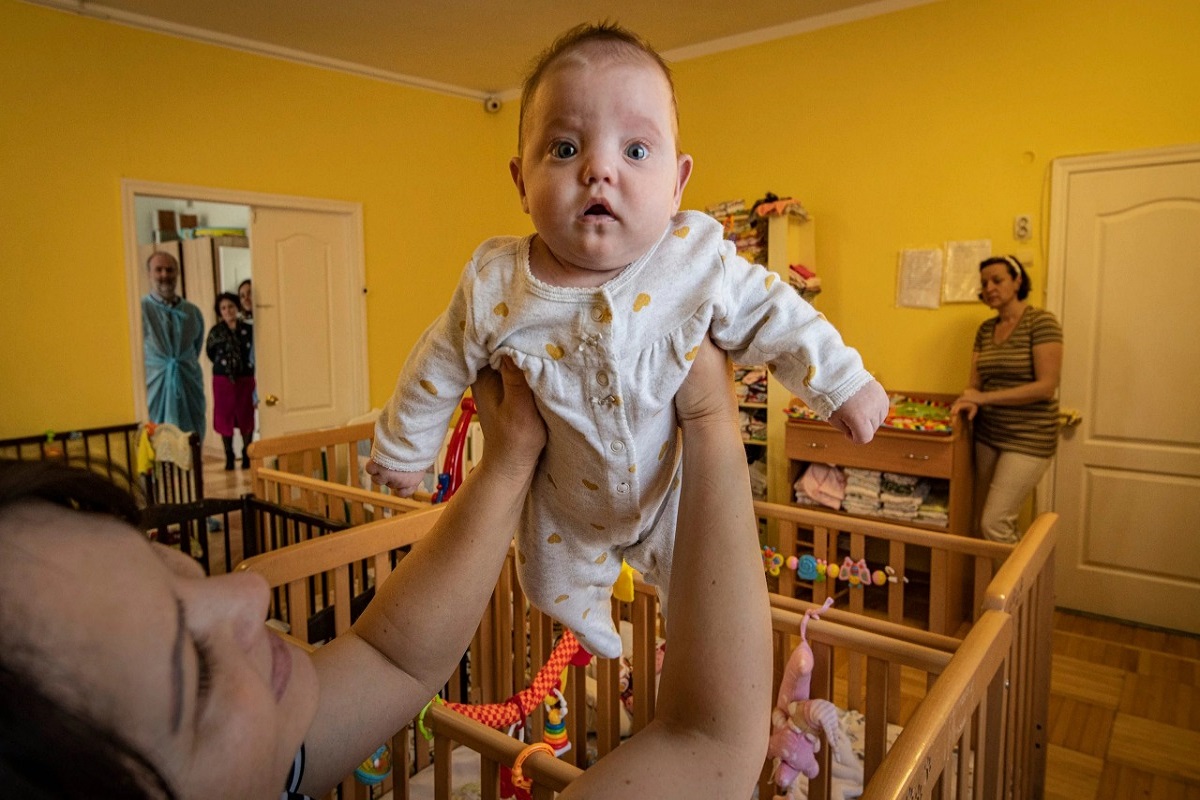- UN experts warned that disabled children are being abused and neglected in Ukraine’s orphanages.
- The human rights officials stated that the war had exacerbated the situation.
- Before the war, more than 100,000 children and adolescents lived in institutions.
UN experts have warned that disabled children are being abused and neglected in institutions across Ukraine.
The human rights officials stated that the war had exacerbated the situation and demanded that the Ukrainian government rectify its “historic wrongs.”
A BBC News investigation uncovered widespread abuse in the nation’s orphanages, prompting their statement.
Before the war, more than 100,000 children and adolescents lived in institutions.
When Russia invaded in February, thousands of disabled people were returned to their families after being removed from institutions.
According to UN experts, they were left without adequate support, putting them at risk for further mistreatment, a life on the streets, or becoming victims of human trafficking.
Nevertheless, thousands of people continue to reside in Ukraine’s vast network of nearly 700 institutions. Even though these institutions are called “orphanages,” ninety percent of their residents have families.
They are victims of a Soviet-era system that encouraged parents to surrender their disabled child to the government.
Many in Ukrainian society believed and continue to believe that disabled children receive superior care in an institution.
One of the experts, UN Special Rapporteur on the rights of persons with disabilities Gerard Quinn, stated that this problem predated the war and that it was time for Ukraine to “reset to the future.”
“All wars reveal historic wrongs in the heat of the moment, and institutionalization is one of those,” he said.
“It is time to act, to press a reset button to the future. In doing that we need a clear commitment from the Ukrainian government to end its system of institutionalization.”
He stated that, as Ukraine rebuilds, disabled people must be a top priority, and that countries and organizations contributing to this effort must invest in community support as opposed to extending the life of institutions.
BBC News visited five orphanages in the south of Ukraine in June and discovered severely malnourished children tied to benches and adults living in cots.
In one institution, we encountered 18-year-old Vasyl Velychko, who was tied to a bench and left to scream for hours while rocking back and forth.
His parents were able to visit, but they accepted that he would be cared for in this manner.
They desired to bring him home, but a lack of community support forced them to surrender him at age five.
His institution was one of several that had taken in disabled children fleeing the fighting in the east.
The directors of some of these facilities told BBC News that they were unable to accommodate the influx of evacuees. One director admitted he was incapable of meeting their needs.
Numerous institution-dwelling disabled children were also relocated to neighboring countries such as Romania and Moldova, which have taken significant steps to abolish their system of institutionalization.
The UN experts stated that they had proof that Ukraine only permitted these countries to support its disabled children if they were housed in institutions.
“Third countries have a heavy responsibility to assist Ukraine to have a better future for its citizens, including children with disabilities,” they warned.
They acknowledged that the war had placed a significant strain on the nation, but insisted that the tens of thousands of disabled children trapped in institutions where there is widespread abuse, neglect, and restraint must be assisted in returning to their families.
[embedpost slug=”/airports-have-been-ordered-to-cease-ignoring-disabled-people/”]





















